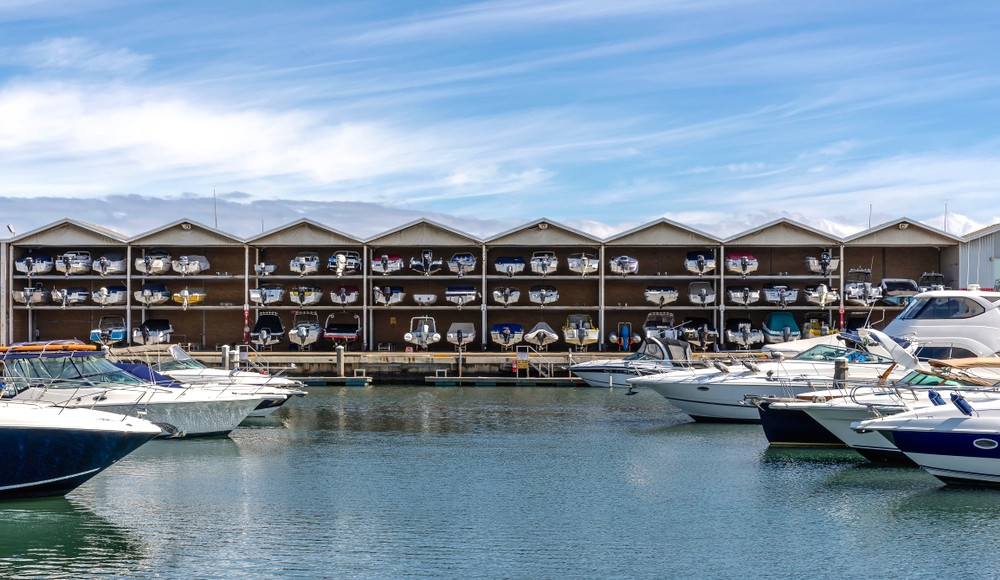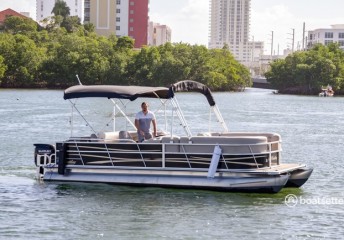Can Boats be Stored in Freshwater and Saltwater?
Last Updated on May 19, 2022 by Boatsetter Team
A Guide to Maintenance and Proper Boat Storage
Have you just bought a new boat and are looking for information on how to store it? You’ve come to the right place. Knowing how much it costs to store your boat in dry storage can sometimes be discouraging to people who wanted to buy a boat, but that’s where water storage comes in. There are two possible ways to do store your boat on the water, you can store boats on saltwater or freshwater. With both options having its own unique upsides and downsides, it can be hard to choose and that’s why we’ve collected all that information in this handy guide.
General Rules for Storing Boats in Water
For those who spend a lot of time on the water, in-water boat storage is the best option. If you want your boat to be in top condition, here are two things that you should remember. Firstly, do not let your boat sit in the water all year round. For example, you can combine water boat storage with dry boat storage as a great way to offset your boat storage costs, all the while keeping it in a good shape. If you prefer to keep your boat close to the water, a floating dock can work well too. And secondly, a good coat of paint goes a long way because, besides the obvious aesthetic advantages, it also protects the boat from damage that comes with consistent use.
Fighting off Damage and Barnacles in Saltwater
This type of boat storage can be damaging, due to the high amount of salt and other minerals in the water and the marine life that might want to find a new home on your boat’s hull. For example, it can reduce the lifespan of manifolds in more than a half, from ten years in freshwater to three or four years in saltwater. To prevent that, it’s important to clean the bottom part of your boat every few months to prevent barnacles from building up and to ensure a smooth cruise every time you’re in the water.
Don’t Let Your Boat Freeze in Freshwater Storage
Freshwater is usually cleaner and generally provides a better environment for the boat since it contains fewer minerals than saltwater. There are two things to pay attention to when storing your boat in freshwater – blisters, and temperature. Blisters occur when the boat is in the water for a longer time, which results in the gel coat absorbing the water, and the best solution for that is a coat of epoxy. Changes in temperature that may occur if you keep your boat in the water when it gets colder are combated by protecting the hull, electronics, and engine, and by making sure you have antifreeze.
Keep Your Boat Close to You and Far from the Water
With dry storage, the advantages are obvious. Not only that you can keep your boat close to you, like in a garage for example, but you can also rest easy knowing it won’t be damaged by its environment or some random passerby. It’s perfect for those who don’t use their boats often or live relatively close to a body of water. In any other case, you should consider the cost of gas and rent for properly storing it, since that can be a deciding factor in the equation.
In the end, it all boils down to your own personal preference and what kind of maintenance you’re prepared to do. Whatever you choose, you should know that you can offset your boat storage costs by renting a boat with the help from Boatsetter platform!

Boatsetter empowers people to explore with confidence by showing them a world of possibility on the water. Rent a boat, list your boat, or become a Boatsetter captain today.










